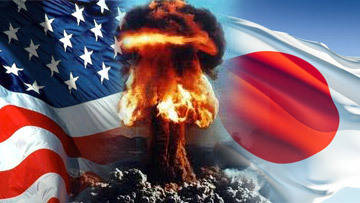Historians redefine the role of Russia in the defeat of Japan ("Rebelion", Spain)
 While the US atomic bombed Hiroshima and Nagasaki in August 1945, one million six hundred thousand Soviet soldiers suddenly attacked the Japanese army in the east of the Asian continent.
While the US atomic bombed Hiroshima and Nagasaki in August 1945, one million six hundred thousand Soviet soldiers suddenly attacked the Japanese army in the east of the Asian continent.In a matter of days, the million-strong army of Emperor Hirohito was defeated.
It was a pivotal moment in World War II in the Pacific that the authors hardly mention. historical works focusing on two atomic bombs dropped within one week 65 years ago.
However, in recent times, some historians have come up with allegations that the actions of the Soviet troops influenced the outcome of the war in the same, if not more, atomic bombing.
In a recently published book by a history professor at the University of California, this point was further developed. Its essence is that the fear of the invasion of Soviet troops forced the Japanese to surrender to the Americans, because they were confident that they would treat them better than the Russians.
In northeast Asia, the Japanese entered the war against the Soviet forces in 1939, when they tried to enter Mongolia. Japanese troops were defeated in the battles of the Khalkhin-Gol River, which forced Tokyo to sign a treaty of neutrality, thanks to which the Soviet Union was not involved in hostilities on the Pacific Ocean.
Thus, Japan was able to focus its efforts on the war with the United States, Britain and the Netherlands, as well as the attack on Pearl Harbor 7 December 1941 of the year.
After Germany signed the 8 Unconditional Surrender Act of May 1945, as well as a series of defeats in the Philippines, Okinawa and Iwo Jima, Japan turned to the USSR asking for mediation efforts to end the war.
However, the head of the Soviet Union, Joseph Stalin, has already made a confidential promise to Washington that he will start a war against Japan three months after the defeat of Germany. Disregarding the requests of Japan, he deployed more than a million soldiers along the border with Manchuria.
The operation, codenamed "The August Storm", began on August 9 of the year 1945, almost simultaneously with the bombing of Nagasaki. In two weeks of fighting, Japan lost 84000 soldiers killed and the USSR lost 12000. Soviet troops did not reach the entire 50 kilometers to the northern Japanese island of Hokkaido.
“The entry of the Soviet Union into the war had a much greater impact on the decision of the Japanese leadership to surrender than atomic bombing. It nullified Japan’s hopes for a way out of the war through the mediation of the USSR, ”said Tsuyoshi Hasegawa, author of Racing the Enemy, which explores the end of the war involving documents recently declassified in Russia , USA and Japan.
The Japanese “sped up the end of the war in the hope that the United States would treat the vanquished better than the USSR,” said Hasegawa, an American citizen, in an interview.
Despite the large number of people killed as a result of the atomic bombing (140000 people in Hiroshima and 80000 in Nagasaki), the Japanese leadership believed that they could withstand the invasion of the anti-Hitler coalition if they retain control of Manchuria and Korea that supplied the resources for war, according to Hasegawa and Terry Charman, a staff member of the Imperial War Museum in London, specializing in the history of World War II.
"The blow of the Soviet troops changed everything," said Charman. “The authorities in Tokyo realized that there was no hope left. Thus, the operation "August storm" to a much greater extent influenced the decision of Japan to surrender than atomic bombing. "
In the United States, bombing is still viewed as some sort of extreme measure that had to be used against an enemy who was ready to fight to the last soldier. For his part, US President Harry Truman and his military advisers proceeded from the assumption that a ground operation would have killed hundreds of thousands of American soldiers.
The impact of the rapid Soviet offensive can be judged by the words of the Japanese Prime Minister of the Second World War, Kantaro Suzuki, who called on his government to surrender.
As Hasegawa writes in his book, Suzuki said: “If we miss this opportunity, the Soviet Union will capture not only Manchuria, Korea and Sakhalin, but also Hokkaido. We need to end the war, while we can still negotiate with the United States. "
Lecturer at the London School of Economics, Dominic Lieven, believes that because of the anti-Sovietism of the West, the importance of the military successes of the USSR was deliberately understated. In addition, "very few Englishmen and Americans witnessed the offensive of the Soviet troops in the Far East with their own eyes, while Western historians did not have access to the Soviet archives," adds Livin.
But the greatest surprise is that in Russia itself this military operation was not given special attention. Apparently, the defeat of the Japanese could not go to any comparison with the victory over Nazi Germany. Similarly, human losses were incomparable: the 12 of thousands who died during the hostilities with Japan and the 27 of millions in the war with Germany.
“This operation was of immense importance,” retired General Makhmut Gareyev, president of the Russian Academy of Military Sciences, said. “Having entered the war with Japan ... the Soviet Union brought the end of the Second World War closer.”
- http://inosmi.ru"rel =" nofollow ">http://inosmi.ru
Information